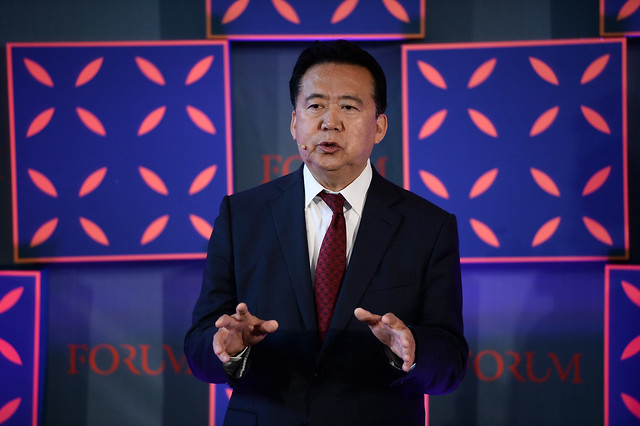Meng Honwei hadn’t been seen since September 2018 (Web Summit) Two weeks after his initial disappearance last fall, the Chinese government announced they had detained and were investigating Hongwei on the grounds of suspected bribery.
In March, the ruling Communist Party released a statement saying that their investigation had finished, that they had found Meng guilty of “violat[ing] the party's political discipline and political rules,” and that his case had been officially passed on to the state prosecutor’s office.
In May, the Supreme People’s Procuratorate announced it had also concluded its investigation into Hongwei, and that his trial would be handled by the Tianjin No 1 Intermediate People’s Court.
The exact nature and scale of Hongwei’s bribery was not known until Thursday’s trial in Tianjin, which was also Hongwei’s first public appearance since September.
According to the People’s Daily, a state-run media organization, Hongwei admitted to having received the bribes between 2005 and 2017, during which time he held the positions of Vice-Minister of Public Security, Director of the Maritime Police Bureau, and Deputy Director of China's State Oceanic Administration.
From 2004 to 2016 he was also the head of Interpol’s Chinese branch and became president of the entire agency, which is based in France, in 2016.
His arrest and investigation is just one example, albeit the most prominent one, of President Xi Jinping’s crackdown on corruption in the country.
To date, over 100 prominent state officials have been accused of corruption; including, just this month, both Yun Guangzhong, who headed the Communist Party in Hohhot, and Dai Zigeng, former publisher of popular daily The Beijing News.
So far, the Chinese government has not made any of the evidence against Hongwei public. The President’s anti-corruption campaign has also been criticized by some for being a tool for persecuting political opponents.

